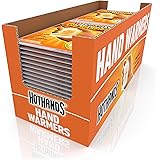Was the San Diego Padres’ decisive 3-0 victory over the Chicago Cubs in Game 2 of the MLB Wild Card Series a testament to their pitching depth, or did the Cubs simply struggle to find their rhythm at the plate? As seen in the accompanying video, the series is now tied 1-1, setting the stage for a dramatic winner-take-all Game 3. This breakdown delves into the key moments, strategic decisions, and standout performances that shaped this pivotal matchup, offering a deeper look into how the Padres leveled the playing field.
Padres’ Pitching Dominance in Game 2
The success of the San Diego Padres in this crucial game was largely attributed to their exceptional pitching staff. A combined shutout was achieved by an impressive rotation of arms, stifling the Cubs’ offense throughout the contest.
Dylan Cease’s Stellar Start
The game was opened by Dylan Cease, who delivered a masterful performance. He pitched 3 and 2/3 innings, allowing no runs and crucially, no free passes. It was noted that this marked his third start of the season without issuing a walk, demonstrating remarkable command. This kind of disciplined pitching is often considered a bedrock for postseason success. Historically, Cease has shown comfort against his former team, the Cubs, holding them to a 2.29 ERA over nine starts, including this playoff outing.
As Cease himself mentioned in his post-game interview, his approach was simple: “I just went in with the mindset I was going to battle and compete.” Such focus can be pivotal in high-stakes games.
Unstoppable Bullpen Contributions
Following Cease, the Padres’ bullpen effectively shut down any hopes of a Cubs rally. Adrian Morejon was credited with a strong two-plus innings of work. However, it was Mason Miller whose performance was truly electrifying; he was described as “phenomenal” for an inning-plus. Miller impressively recorded five strikeouts against five batters faced, a feat that was even called “like a cheat code” by Dylan Cease. His ability to deliver blazing fastballs, reportedly up to 104 miles per hour, instilled immense confidence in the Padres’ defense and lineup, as noted by Fernando Tatis Jr.
Robert Suarez ultimately closed out the game, securing the 3-0 victory. The combined effort from the pitching staff truly underscored the Padres’ “depth in our pen,” a factor that is often highlighted as a significant advantage in playoff series.
Key Offensive Plays and Defensive Brilliance
While pitching was a dominant theme, timely hitting and solid defense were equally vital for the Padres.
Manny Machado’s Clutch Home Run
The decisive blow came in the fifth inning when Manny Machado launched a two-run home run, extending the Padres’ lead to 3-0. This powerful hit proved to be more than enough given the pitching performance. Fernando Tatis Jr. vividly recalled the moment, stating that a three-run lead in the playoffs “is like an eight-run lead in the regular season,” emphasizing its significance.
Padres’ Sound Defensive Efforts
Defensive prowess was also on full display. The transcript highlights a fantastic double play that ended the game, involving Xander Bogaerts and Jake Cronenworth, whose “fast hands” were praised. Fernando Tatis Jr. also made a “terrific play,” a challenging catch in the eighth inning which he described as needing aggression and tracking the ball “all the way in the sun.” Such plays are often undervalued but critical in tight playoff contests, preventing potential scoring opportunities for the opposition.
Cubs’ Offensive Struggles and Strategic Decisions
Conversely, the Chicago Cubs found themselves in an offensive slump, compounding the challenges faced from their pitching strategy.
Stifled at the Plate
The Cubs offense was remarkably quiet, managing only four hits and leaving five runners on base. This resulted in being shut out for only the second time at home all season, a surprising statistic for a team ranked No. 5 in runs scored throughout the year. As Craig Counsell, the Cubs’ manager, elaborated, the Padres’ pitchers were adept at “exploiting Pete’s holes” and executing pitches extremely well, making it tough for his batters to “get pitches to hit.”
The collective struggle was evident, with the Cubs accumulating up to 24 strikeouts through the first two games of the series. This suggested a challenge in adjusting to the quality of the Padres’ pitching staff.
Questions Around Shota Imanaga’s Start
The Cubs’ pitching strategy involved Shota Imanaga as an “opener start,” a tactical decision sometimes employed in modern baseball to match specific pitchers against a lineup’s strongest hitters early in the game. However, the decision to stick with Imanaga in the fifth inning, where he ultimately gave up Machado’s two-run home run, became a point of post-game discussion.
Manager Craig Counsell was pressed on this decision. He acknowledged that “the result suggested we should have done something different,” yet he expressed continued “confidence in Shota,” believing he was pitching well despite the mistake. The possibility of intentionally walking Machado or bringing in a different pitcher like Soroka was considered, but Counsell’s trust in Imanaga’s “crisp” stuff remained.
Looking Ahead to the Winner-Take-All Game 3
With the series now tied, all eyes turn to Game 3, a true “winner-take-all” scenario that amplifies the pressure and excitement.
Experience and Urgency for Both Sides
Both teams spoke of their experience and readiness for such a high-stakes game. Dylan Cease highlighted the Padres’ “lot of experience” and “depth in our pen” as beneficial factors. Fernando Tatis Jr. reiterated the team’s “mission” to complete their objective, emphasizing that they are “up for the challenge.”
From the Cubs’ perspective, Craig Counsell expressed confidence in his team’s resilience, noting that they are “made for that” kind of environment. However, he clearly stated, “we’re going to have to produce more offense tomorrow. There’s no question.”
The transcript also delves into the unique “adrenaline” that accompanies playoff baseball. Players acknowledge that while every MLB game is important, an elimination game brings an undeniable heightened sense of urgency. Playing in front of a sold-out stadium like Wrigley Field is a familiar experience, but the added context of postseason baseball inevitably “feel[s] a little different.”
Game 3 Starters and Expectations
The Cubs have named Jameson Taillon as their Game 3 starter. He concluded the regular season with a respectable 3.68 ERA over 129 innings, indicating he could provide a solid outing. Conversely, the Padres’ starter for Game 3 was still being discussed at the time of the post-game interviews, adding an element of suspense to their strategy. This decision could significantly impact the Padres Cubs Game 2 outcome, as a fresh arm might be needed to maintain their pitching dominance.











